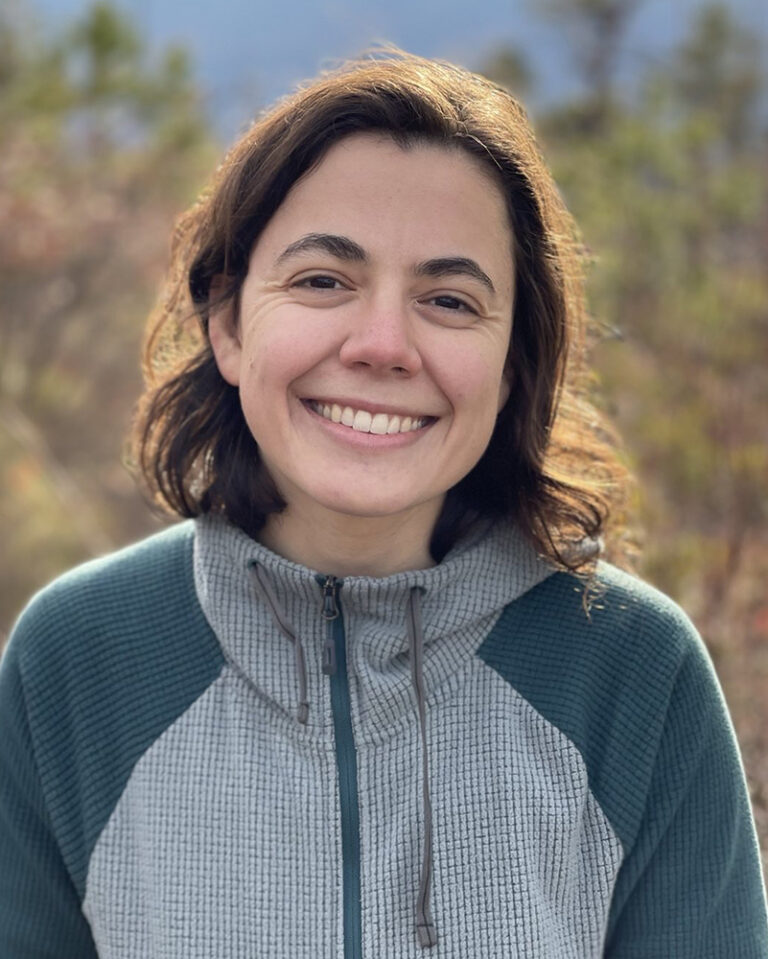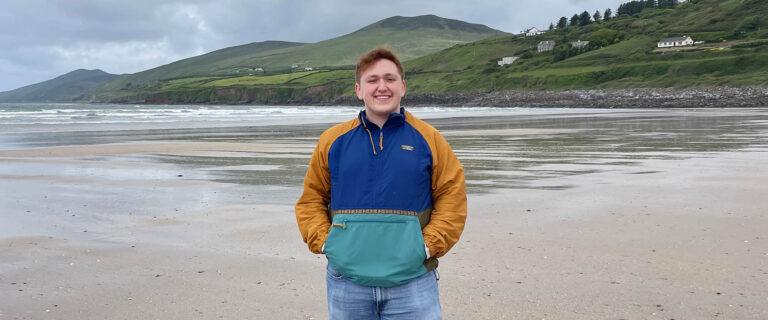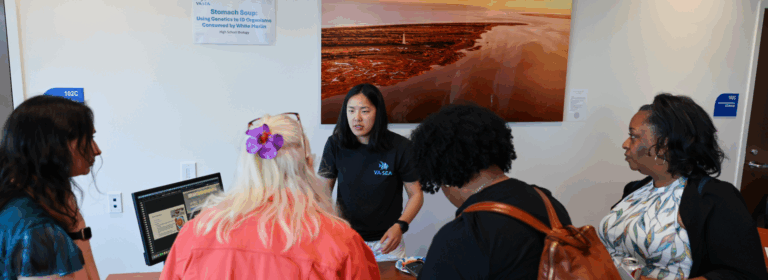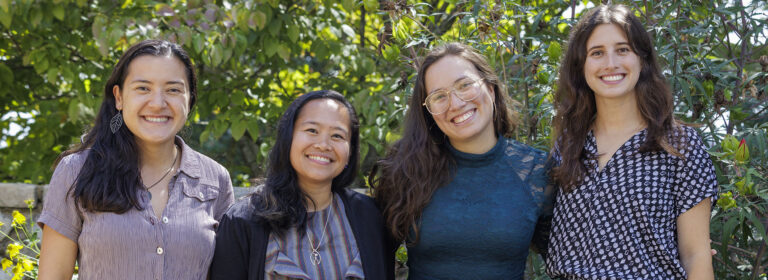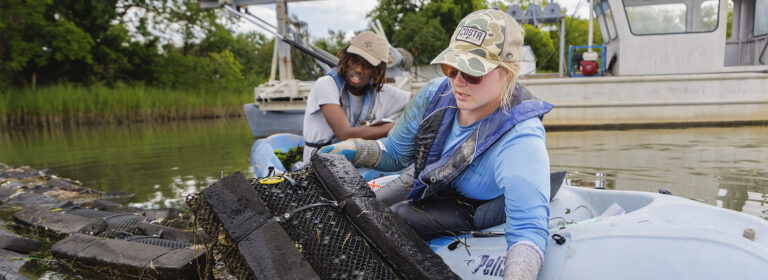Above left to right: Kayla Cahoon, Mikayla Call, Mariana Castaneda-Guzman, Paul Clerkin, Sierra Hildebrandt, Alex Marquardt, and Hannah Mast.
2022 Graduate Research Fellows Announced
Virginia Sea Grant is pleased to announce the 2022 Graduate Research Fellows. These graduate students from across Virginia will receive professional development opportunities through the fellowship as they address coastal resource issues. During the fellowship, each student will work with a professional mentor who will help them share their research with coastal communities.
“We’re excited to welcome an extremely diverse group of Graduate Research Fellows into the VASG student and professional cohort,” said Troy Hartley, director of Virginia Sea Grant. “Their unique lived experiences, perspectives, and interests will drive innovation that is critical to address coastal issues in Virginia. We look forward to supporting their professional growth for years to come.”
Kayla Cahoon is a Ph.D. student at the Virginia Institute of Marine Science. She is creating a geologic map to show historic sea level change along Virginia’s Eastern Shore. She analyzes sediment from deep underground to understand how sea level from hundreds of thousands of years ago may be similar to future sea levels. Sea level rise can lead to saltwater leaching into agricultural fields and can affect groundwater tables. As part of her fellowship, she will collaborate with mentors at the Barrier Island Center to share her research with communities on the Eastern Shore.
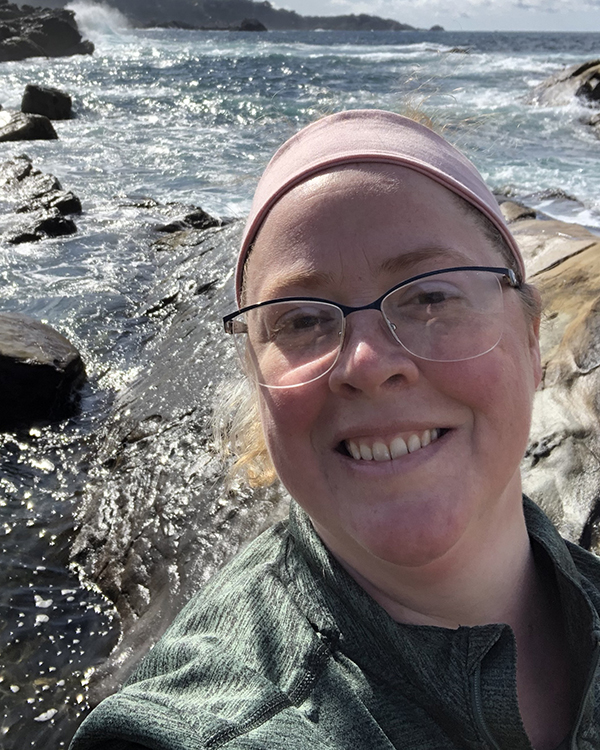
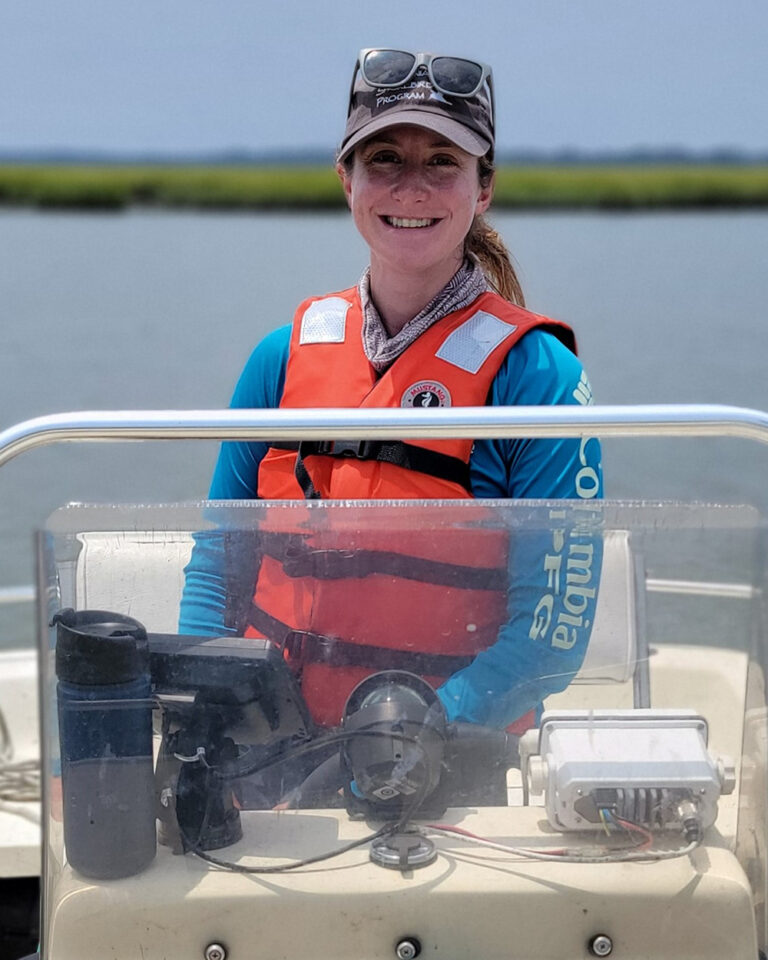
Mikayla Call is a master’s student at the Virginia Tech Department of Fish & Wildlife Conservation. Her research focuses on shorebird populations, which use Virginia’s barrier islands as nesting grounds. As rising sea levels change Virginia’s barrier islands, the types of shorebird habitat and the protection these islands provide for Virginia’s Eastern Shore are also changing. As a part of the Disaster Response and Risk Management program, Call is interested in linking her research to coastal resilience efforts. During her fellowship, she will collaborate with professional mentors at the Nature Conservancy and the Chincoteague National Wildlife Refuge.
Mariana Castaneda-Guzman is a master’s student at the Virginia Tech Department of Fish & Wildlife Conservation. She will take a big-data approach to study how environmental factors like warming water surface temperatures can impact water-borne pathogens like vibrio, which can cause disease for oysters and food-borne illness in humans. As part of her fellowship, she will collaborate with a fishery research biologist with the U.S. Department of Agriculture to learn about federal agencies.
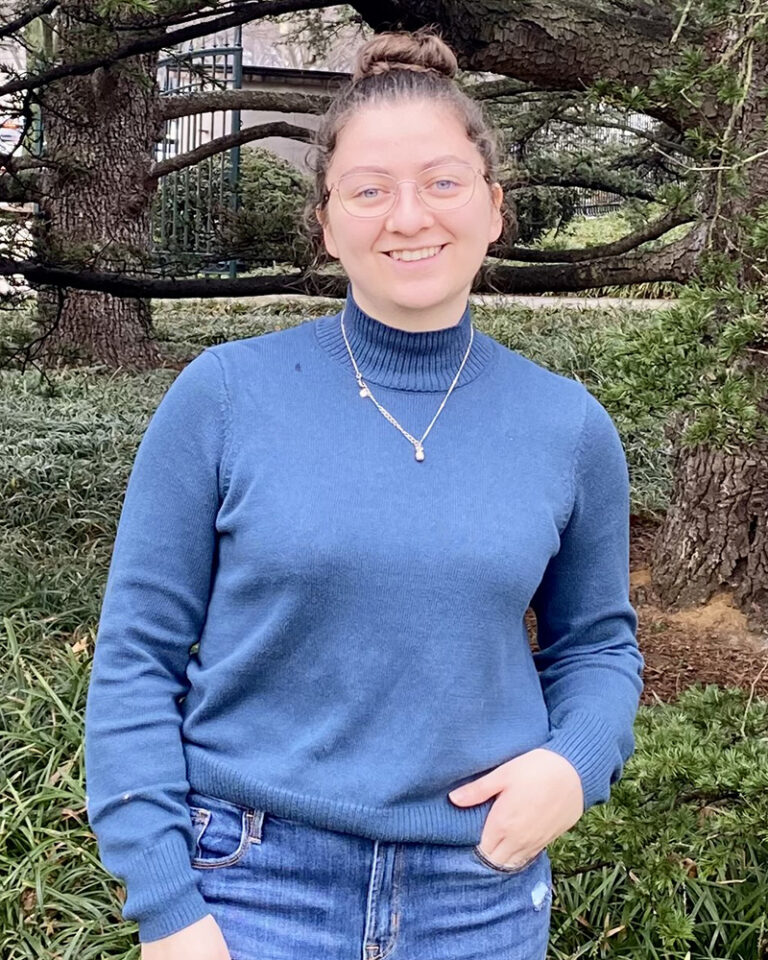
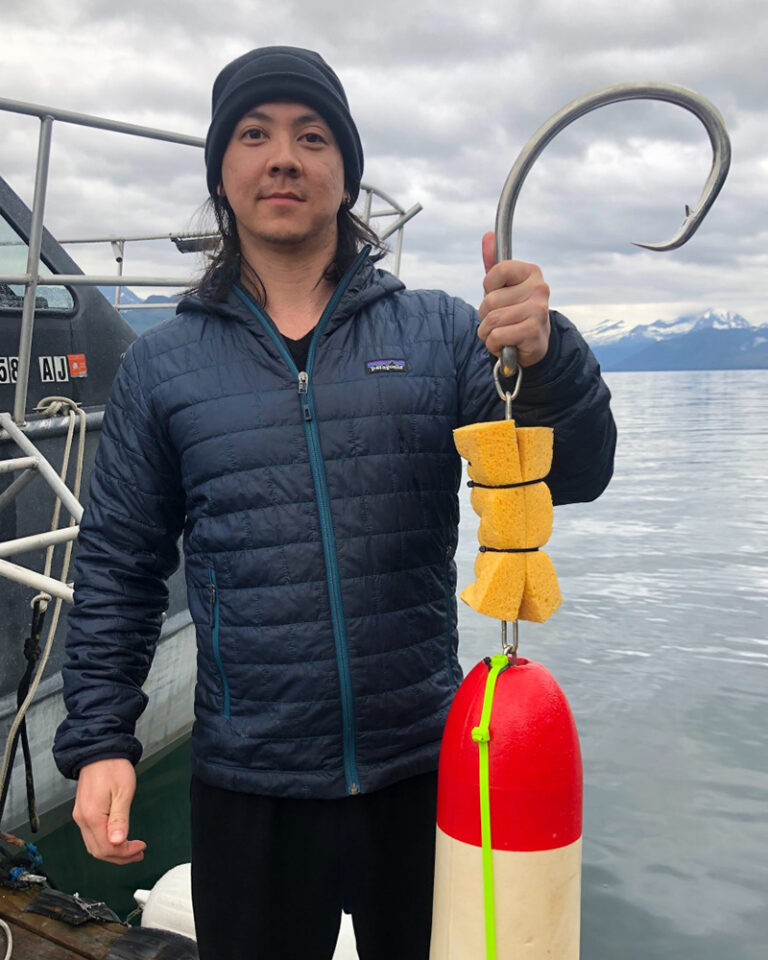
Paul Clerkin is a Ph.D. student at the Virginia Institute of Marine Science. His research will investigate how trace amounts of DNA left behind in the environment (eDNA) to monitor Virginia’s coastal sharks. This new method of monitoring sharks would be less labor-intensive than other methods of shark monitoring and could complement information from traditional shark surveys. He will compare the types of sharks he detects through eDNA to the sharks caught during VIMS longline survey. During the fellowship, he will collaborate with his professional mentor, marine conservation biologist David Shiffman, to learn more about science communication.
Sierra Hildebrandt is a Ph.D. student at Old Dominion University’s Department of Biological Sciences. During her fellowship, she will create a database of living shoreline projects in Virginia and evaluate living shoreline performance over time. She will also collaborate with her professional mentor at Wetlands Watch to create outreach materials related to living shorelines and her research.
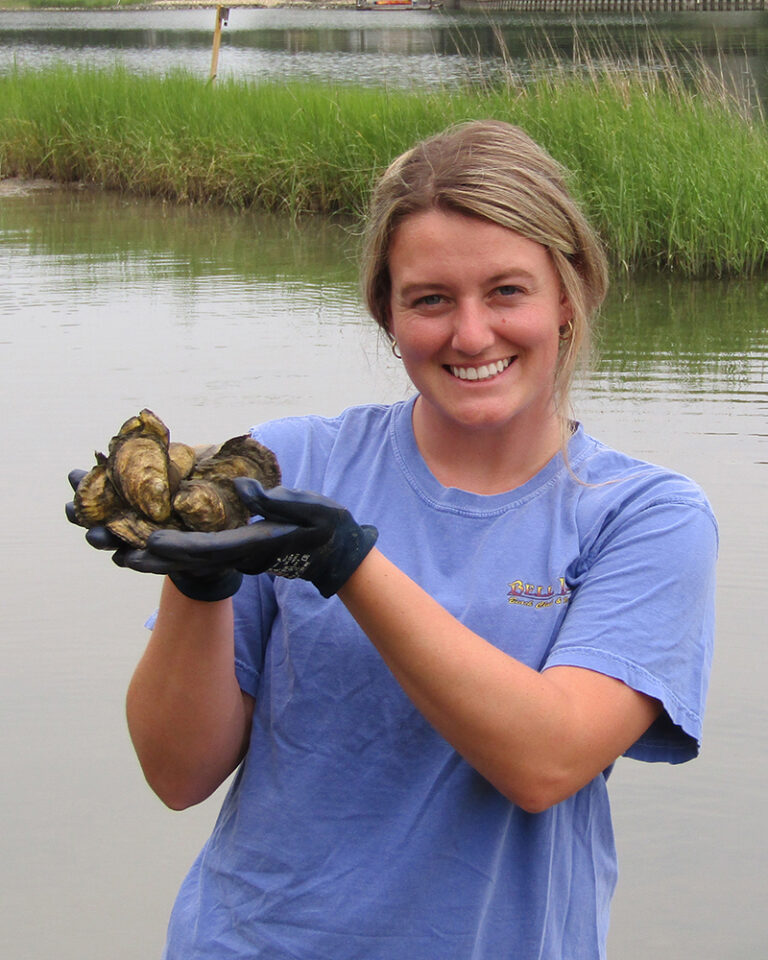
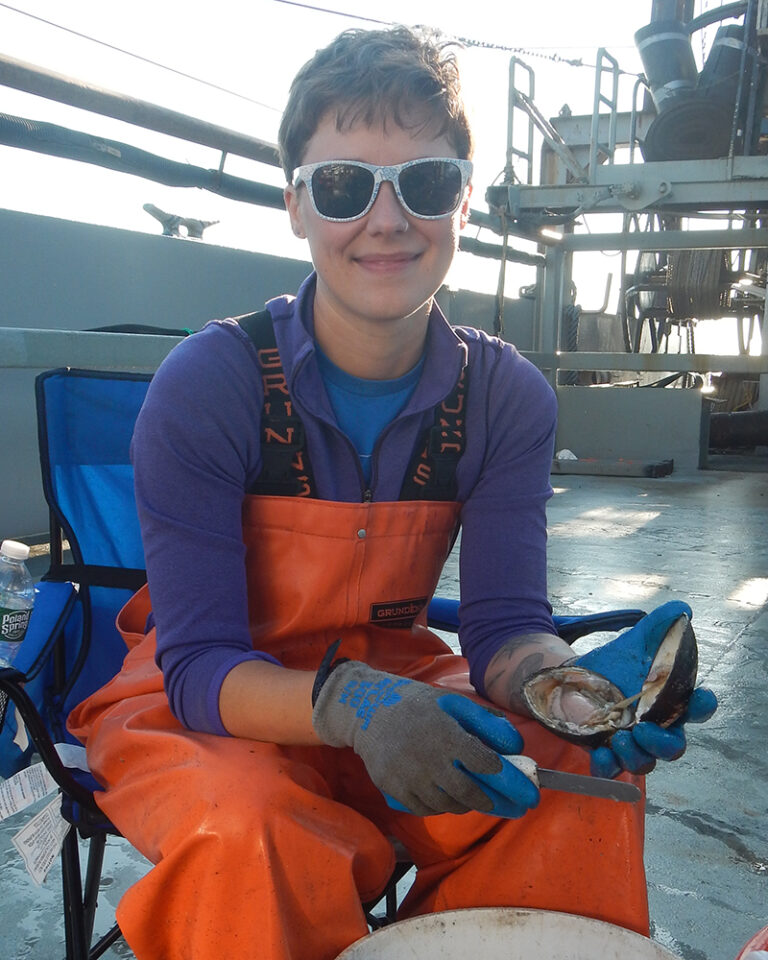
Alex Marquardt is a Ph.D. student at the Virginia Institute of Marine Science. Her research focuses on the growth and survival of oysters. She will study existing reefs and fossilized oysters to understand how oyster reefs have grown during different times in the Bay’s history, and the interplay between oyster recruitment, disease, and environmental conditions. During her fellowship, she will work with a professional mentor at the Virginia Marine Resources Commission and participate in Shellfish Management Advisory Committee meetings.
Hannah Mast is a Ph.D. student in environmental sciences at the University of Virginia. Her project uses remote sensing data to measure photosynthesis in Virginia’s wetlands. This serves as a measurement of how healthy or productive the wetlands might be, and by extension, the flood and erosion protection they can provide for nearby communities. As part of her fellowship, Mast will collaborate with a professional mentor from the Department of Environmental Quality to learn more about wetlands policy and mapmaking.
